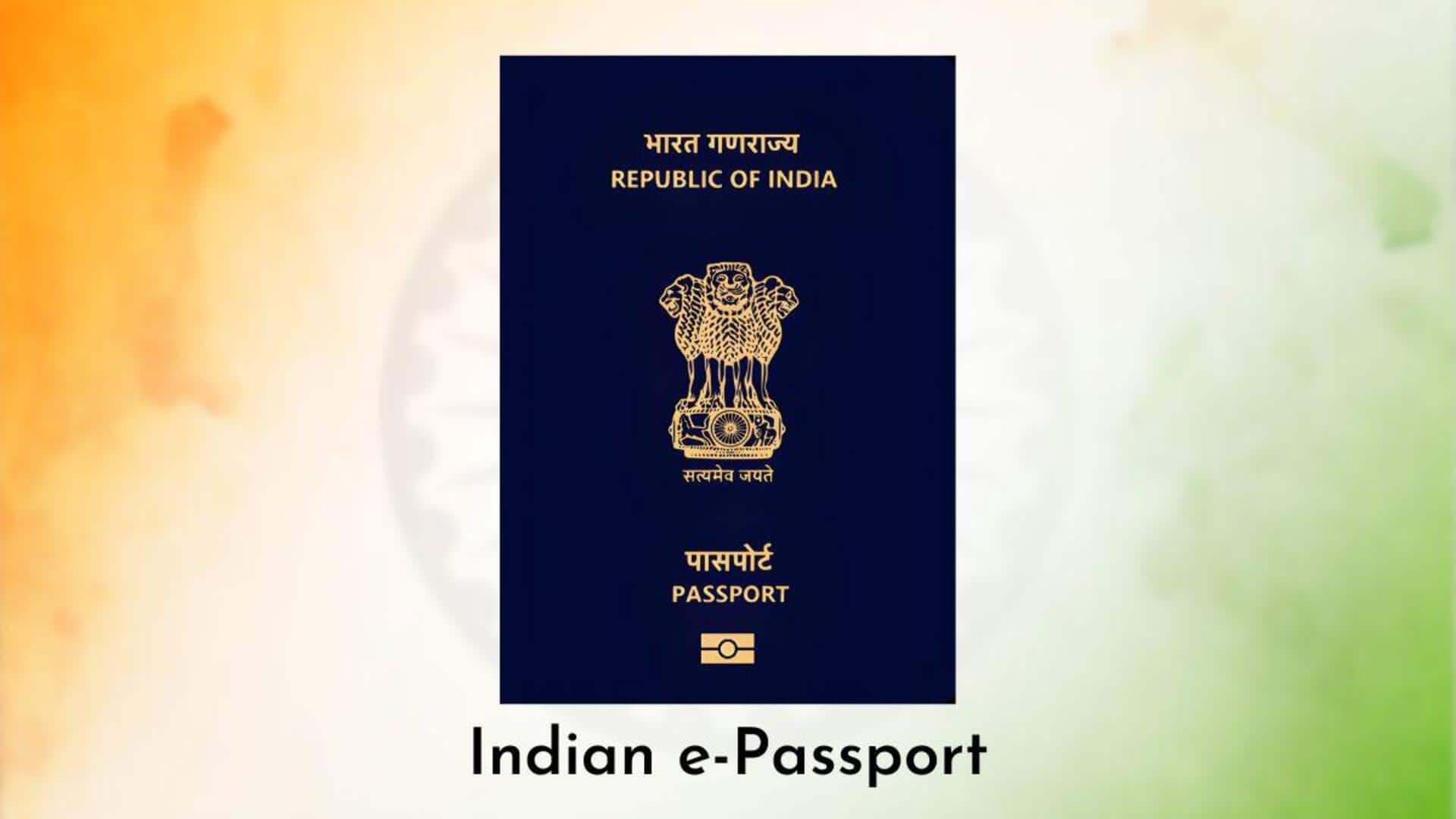
What is an e-passport? India's digital upgrade with biometric chip
What's the story
India has officially joined the ranks of over 140 countries in introducing biometric e-passports. The move is part of a larger push for digital identity and paperless mobility, aimed at streamlining immigration processes and enhancing data security. The new chip-based passports are not mandatory for current holders but offer several benefits, such as faster immigration and forgery prevention.
Data security
Biometric data storage and global compatibility of e-passports
The e-passport combines a traditional paper booklet with an embedded Radio Frequency Identification (RFID) chip. This chip securely stores the passport holder's biometric data, including fingerprints and photographs. A small gold-colored symbol on the front cover indicates this upgrade, ensuring global compatibility as per International Civil Aviation Organisation (ICAO) standards.
Rollout progress
E-passport rollout and its impact on global travel
The e-passport rollout is part of the Passport Seva Programme 2.0, with pilot projects launched in cities like Nagpur, Bhubaneswar, Chennai, and Amritsar. The nationwide rollout is expected to be completed by mid-2025. This upgrade not only enhances security but also streamlines immigration processes and prevents identity fraud.
Digital governance
E-passports and India's digital transformation agenda
The introduction of e-passports is a major step in India's digital transformation agenda, promoting paperless services and smart identity management. The chip-based passports are internationally recognized, simplifying visa processing and cross-border movement for Indian nationals. They also support future updates or renewals more efficiently due to electronic data storage, further streamlining the application process.
International standards
Global adoption of e-passports and India's position
India's move to e-passports comes amid a global trend toward digital travel documents. Countries like the United States, Canada, Japan, Australia, and France have already adopted similar technology, issuing biometric e-passports to their citizens. The shift not only improves security but also enhances India's standing in international travel and security protocols.